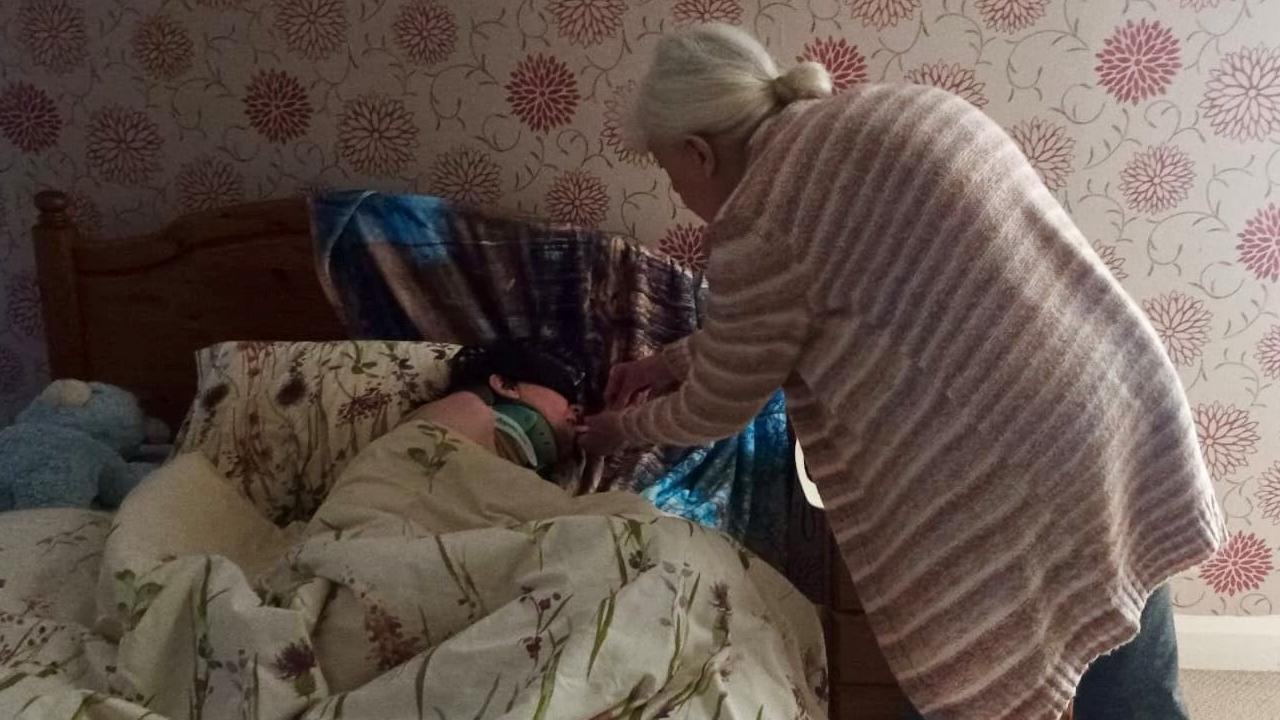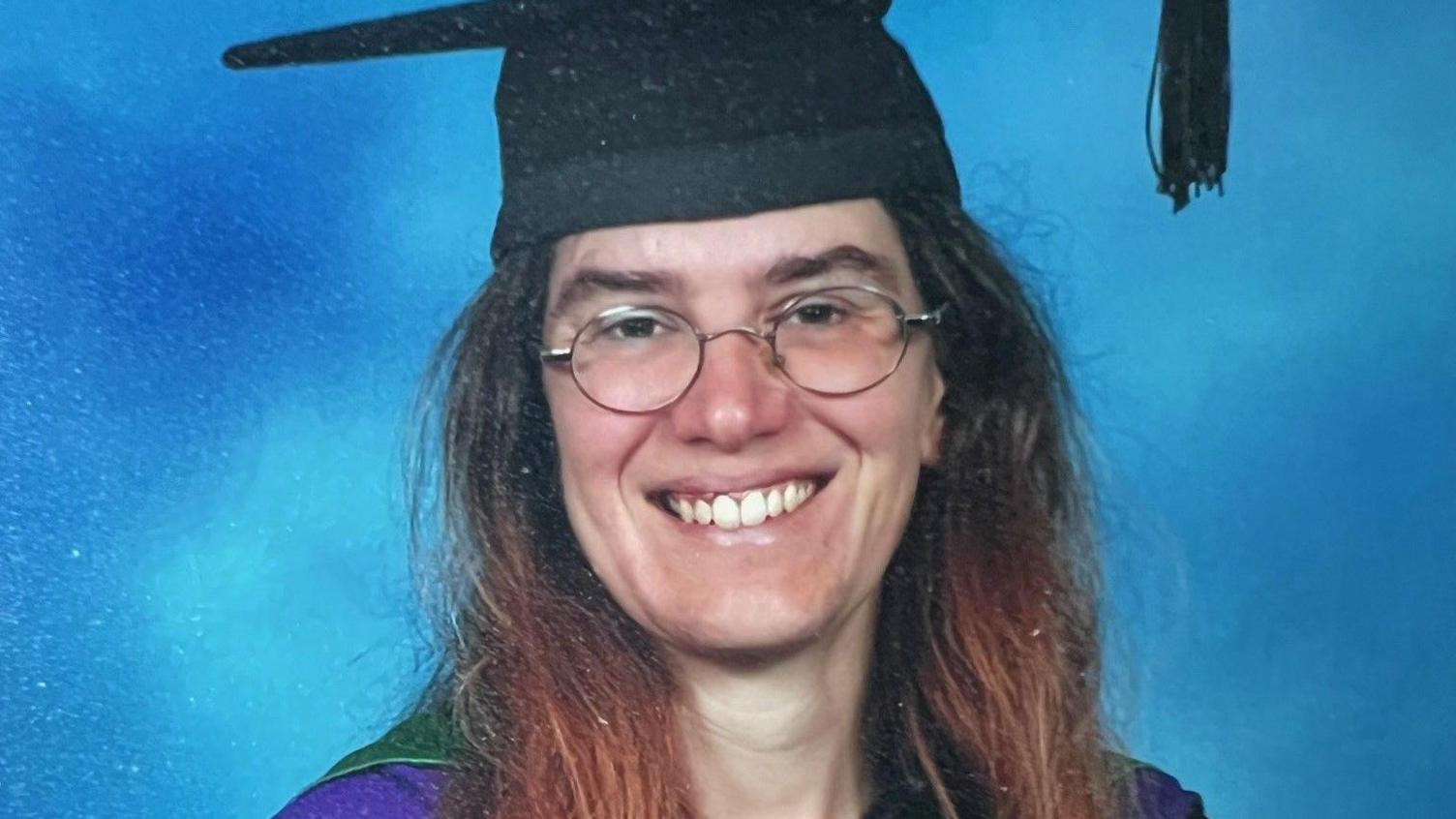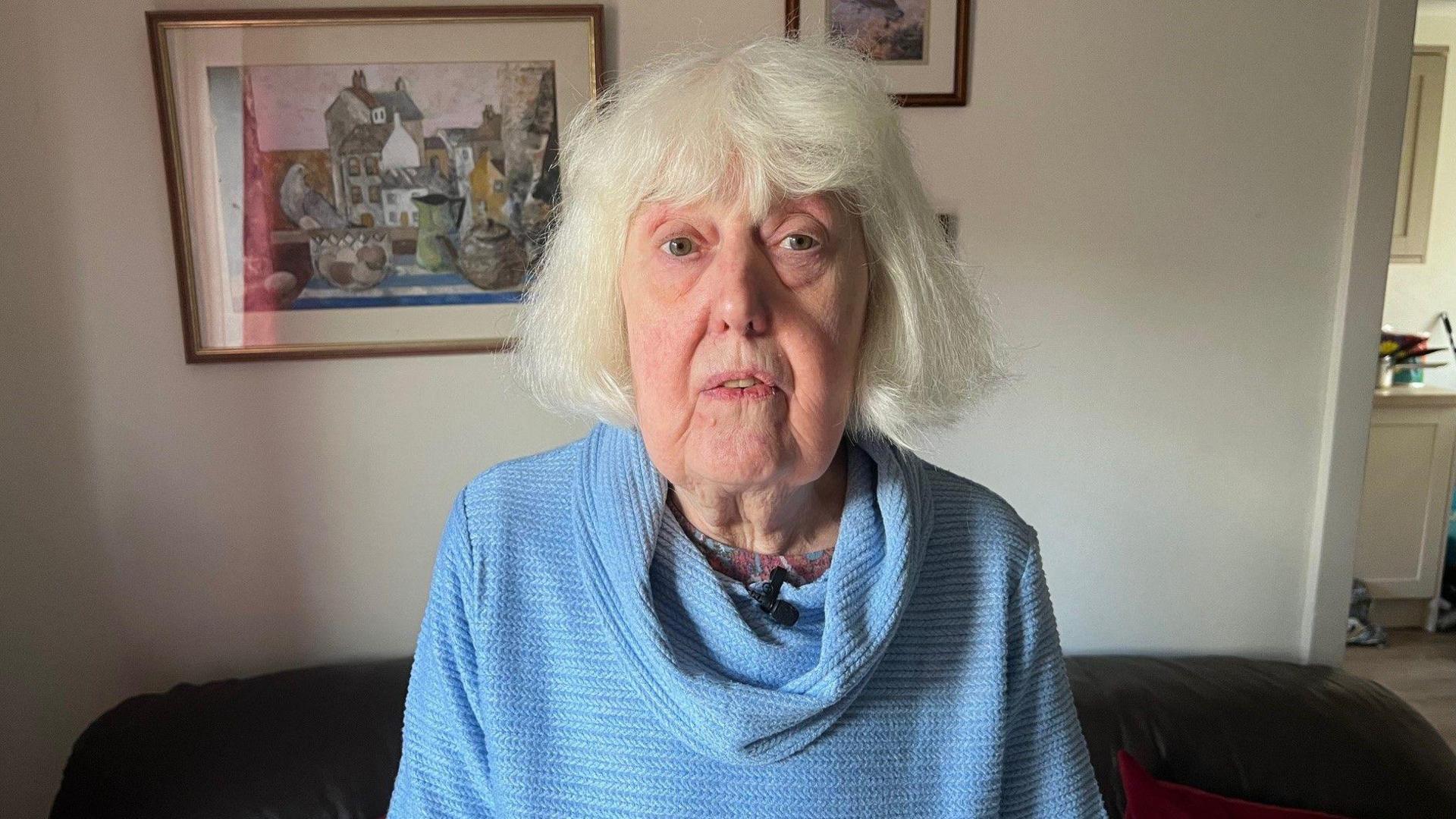Bedbound patient facing delay feels 'buried alive'

Deborah Seymour has been bedbound and living in a darkened room for two years
- Published
A woman left bedbound following a Covid infection four years ago has criticised her NHS care after being told she faces a 40-week wait to see a hospital specialist.
Deborah Seymour, from Scarborough, has been diagnosed with illnesses including Long Covid and ME, but despite tests no physical cause has been found for other symptoms including severe head and neck pain.
The 50-year-old, who said she felt "buried alive", was initially told by York Hospital she faced a year-long wait to see a neurologist, but it has since been reduced to nine months.
York and Scarborough Teaching Hospitals NHS Trust said it understood some patients were waiting longer than "we would like" and apologised for the "inconvenience and worry" caused.
Ms Seymour's family said her health has been deteriorating since she first caught Covid-19 in December 2020 and for the past two years has been confined to bed in a darkened room at her mother's house.
The family said she lives in constant pain, is unable to sit or stand and is so hypersensitive to light that she wears a blindfold.
In statements, recorded on a mobile phone because she cannot stand people in the room, Ms Seymour said she felt "buried alive" and that she was "suffocating".
"I've lost everything – I can't even see my children," she said.
"I don't have a life at all."

Ms Seymour was fit and well before being infected with Covid-19 four years ago
Ms Seymour had two emergency admissions to Scarborough Hospital last year but doctors were unable to find a physical cause for her symptoms on each occasion.
Following the first admission in April 2023, for shaking, back pain and sensitivity to light and sound, it was suggested some of her symptoms might have a psychological element – but her family say she was assessed and discharged by the mental health team.
Then in September 2023, following the second hospital admission for headaches and neck pain, doctors diagnosed "functional symptoms", stating there was "no clear evidence of a medical pathology".
Ms Seymour's mother, Sylvia Snow, said there was "no way" it could be psychological.
"Nobody has given a reason for that - I think it's a convenient diagnosis because they don't know what to do," she said.
Ms Snow added that her daughter "gets worse every day" and "desperately needs help" with a "proper diagnosis".

Sylvia Snow said her daughter's health deteriorates every day
In August, Ms Seymour received a letter from York Hospital to say she had been referred for an appointment at a neurology clinic by her GP.
Initially the Trust said the waiting time for a first appointment would be 52-weeks but this was reduced to 40-weeks in a subsequent letter.
Ms Seymour said she didn't want to be "filed away under too difficult".
"I need doctors to be open minded and brave – somebody help me," she said.
York and Scarborough Teaching Hospitals NHS Trust said it was well documented the pandemic and industrial action had impacted waiting times.
"We're working hard to see patients as soon as we can and have made good progress reducing waiting times, however we do recognise that some patients are waiting longer than we would like, especially for routine referrals," a spokesperson said.
"We understand this is a difficult wait for Ms Seymour and her family and we are sorry for the inconvenience and worry this is causing for them.
"If Ms Seymour has concerns about the care she has received, we are happy to follow this up if she is able to get in touch with us directly."
Additional reporting by Mary Litchfield.
Listen to highlights from North Yorkshire on BBC Sounds, catch up with the latest episode of Look North or tell us a story you think we should be covering here, external.